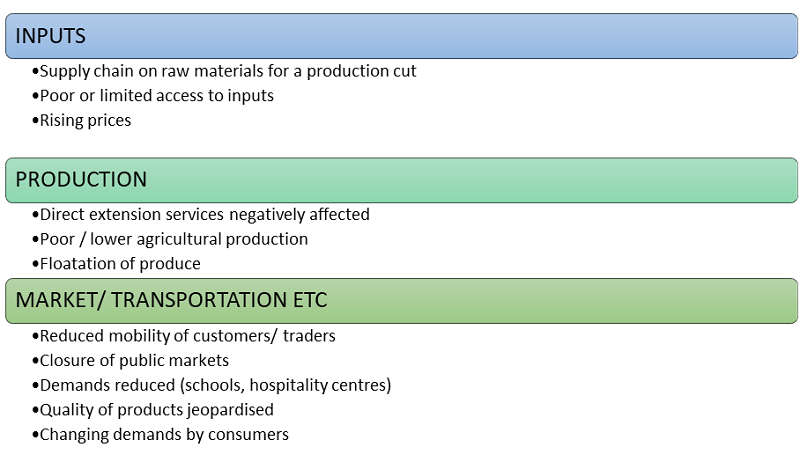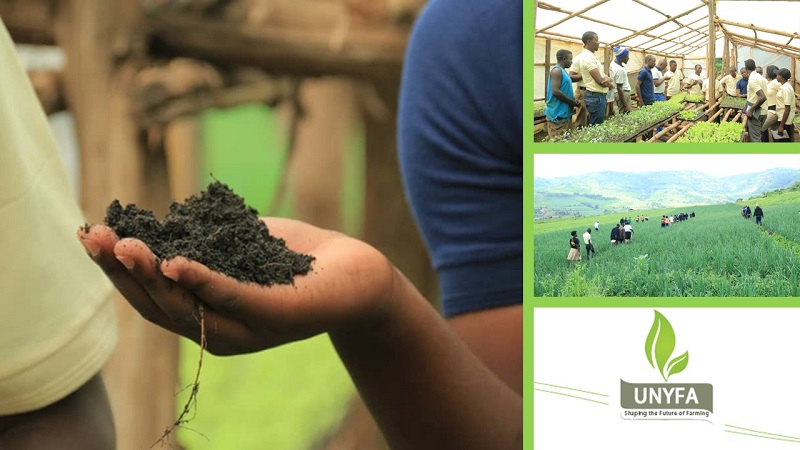By Denis Kabiito, CEO, Uganda National Young Farmers Association (UNYFA) and WFO Youth Committee facilitator
Challenges due to COVID-19
- Increased costs of doing business
- Loss of jobs/ downsizing of staff on farms
- Members forums postponed/ limited freedom of association. No group, AGM meeting
The challenges are seen along the various enterprise value chains:

Impact of COVID-19 to Agriculture
The underlying risk now and after COVID-19 is that production chains are disrupted, and SMEs that youth are engaged in threatened.
Food insecurity and without food there is no exit from the pandemic.
Including farmers in all the strategies for realigning the economy of the country is needed.
What’s next?
Farmers and farmer organisations need to find resilience and innovation (find business models to adapt).
- Need to increase direct farmer to consumer channels.
- New business lines/ product lines–diversification.
- Value addition and storage.
- Local sourcing of components and raw materials.
- Integration of transportation logistics in production cycles/ on farms or FO
- Digitisation and automation.
- Expanding market share and rethinking on how to gain new markets.
Call to Action
The farmers need support from out. It is necessary to protect and support agriculture food systems & SMEs:
- The pandemic policy should integrate food system resilience into their response. It’s not only a health risk but also a food security risk.
- Need for financial support, insurance and assets in that line.
- Establishment and facilitation of partnerships that help farmers (PPs, access to big buyers, government tenders etc.)
- Policies that prioritise resilience, entrepreneurship and innovation.
- Align agriculture training to business resilience, online markets and health risks.
- Grants and loans to agri-food SMEs and some tax exemptions.
